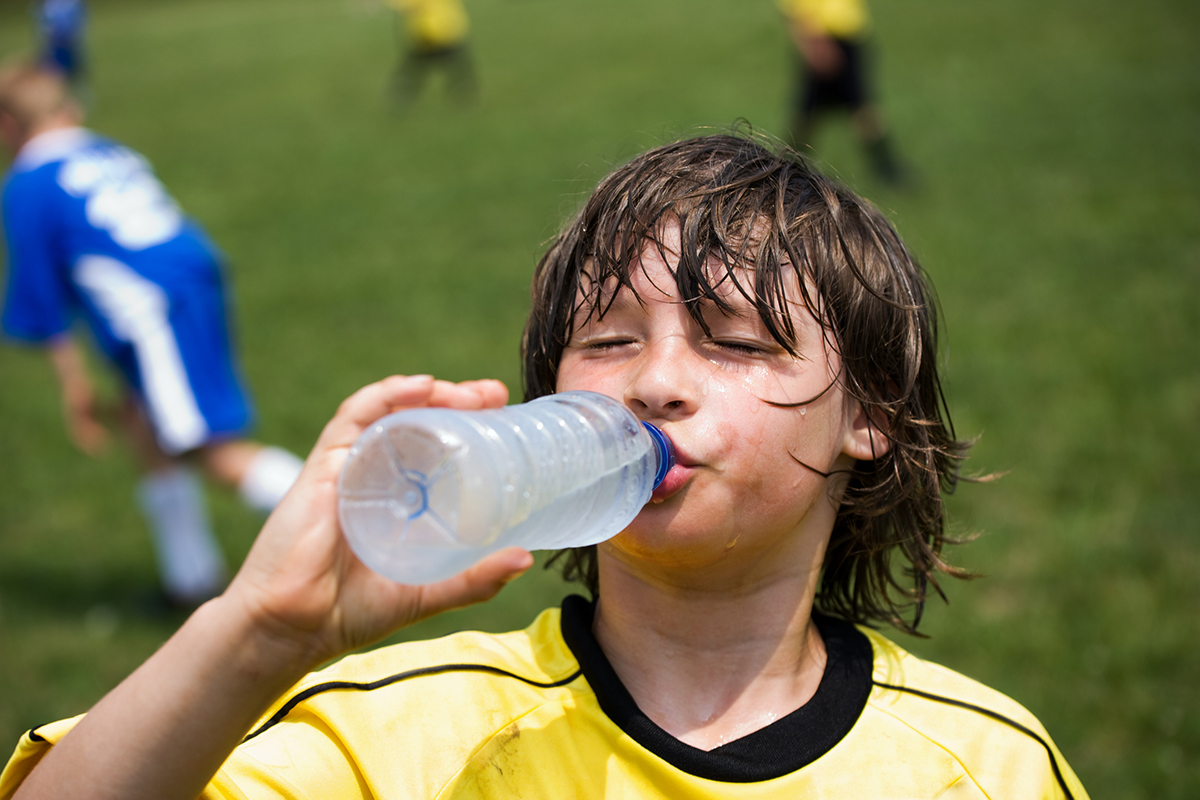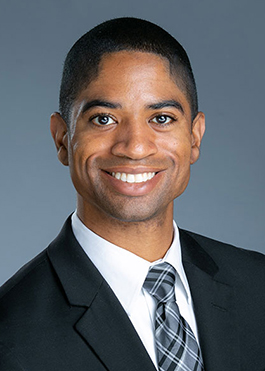
Although the heat of summer has broken and autumn is here, it’s still important for athletes to keep hydrated.
Athletic trainers from Northside Hospital Orthopedic Institute – Sports Medicine use rolling water stations to keep players and coaches hydrated and make sure athletes are drinking sports drinks during games. Student aides provide water bottles to athletes during practices and at timeouts.
Water — or something else?
Ruth Walker-Harris, an athletic trainer at Source Fitness Management, works with student-athletes at Shiloh High School in Gwinnett County. She suggested athletes not rely solely on water for hydration during a competition.
“We advise all of our athletes to include some form of electrolyte drink into their rotation of drinks after practices and also as they begin to hydrate for game day,” Harris said. “We see electrolyte loss during intense exercise or in hot, humid environments where a lot of sweating occurs.
“Drinks with electrolytes, like sports drinks, can help replenish lost salts and minerals. For some of our athletes who may need a little bit more hydration, we give them some sports drinks such as BioLyte or LiquidIV to help them.”
Dr. Torrance Laury of Northside Hospital Orthopedic Institute – Sports Medicine agreed.
“Maintaining adequate hydration before, during and after practice sessions and games is essential in order to prevent these conditions,” Dr. Laury said. “Replenishing fluid stores with both water as well as sports drinks is important for hydration and electrolyte balance.”
What’s the danger?
Dr. Laury said the combination of heat and humidity in Georgia can increase the risk of heat-related injury and illness including cramping, dehydration, heat exhaustion and heatstroke. He urged teams and medical providers to prepare for such problems.
“In the event of a serious heat-related illness, it is critical to have an emergency action plan in place, which includes methods for accurately monitoring core body temperature as well as cooling mechanisms, including cooling towels, ice packs and ice baths to effectively bring down the temperature,” he said.
What about for non-athletes?
The advice given to high school football players on hydration can be effectively translated to everyday athletes and people who work outside, although it might be adjusted slightly based on the specific needs of these groups. Here are some key points Walker-Harris made about hydration for athletes and everyone else:
- Maintain regular hydration
- For football players: We encourage consistent hydration throughout the day, not just before and during practice or games. This helps ensure they are well-hydrated before physical activity begins.
- For everyday athletes/workers: Staying hydrated throughout the day is equally important. Drinking water consistently, even when not feeling thirsty, helps maintain optimal hydration levels, especially in hot or demanding environments.
- Monitor hydration levels
- For football players: Monitoring urine color is a simple gauge of hydration. Light-colored urine generally indicates proper hydration, while dark urine suggests the need for more fluids.
- For everyday athletes/workers: This same principle applies. Regular checks can help identify if they need more fluids, particularly if they are sweating heavily or working in hot conditions.
- Pre- and post-activity hydration
- For football players: Drinking water before, during and after practice or games is crucial. For intense workouts or in high heat, including sports drinks with electrolytes can help replace lost salts and minerals.
- For everyday athletes/workers: This is relevant when exercising or working outside. Drinking water before starting work or exercise helps ensure they are hydrated. For longer durations or in hot conditions, incorporating electrolyte drinks might be necessary to replace what’s lost through sweat.
- Understand the signs of dehydration
- For football players: Awareness of the signs of dehydration, such as dizziness, excessive thirst, fatigue, and dark urine, is important. Educating athletes on these signs helps prevent severe dehydration.
- For everyday athletes/workers: Recognizing dehydration signs is crucial for anyone, especially those working outside or exercising. They should know to take breaks, seek shade, and hydrate if they experience any of these symptoms.
- Adjust hydration based on conditions
- For football players: Hydration needs can change based on weather and intensity of training. On hotter days or during more intense training sessions, they need to drink more.
- For everyday athletes/workers: Similarly, hydration needs vary with the environment. In hot or humid conditions, they should drink more frequently and may need to increase fluid intake based on their activity level and sweat rate.
- Customize hydration for individual needs
- For football players: Recognize that each player might have different hydration needs depending on their size, sweat rate, and how their body responds to activity.
- For everyday athletes/workers: Customizing hydration is also essential. People who sweat more or are exposed to the sun longer will need more fluids. Understanding one’s own needs and responding accordingly is key.
Learn more about sports medicine services at Northside.


